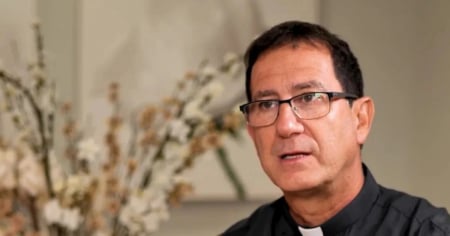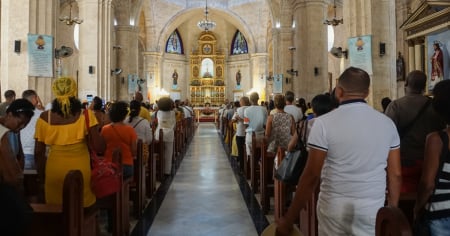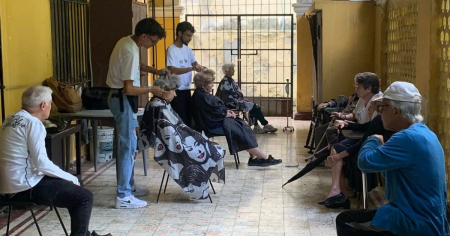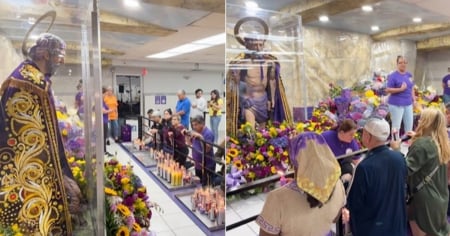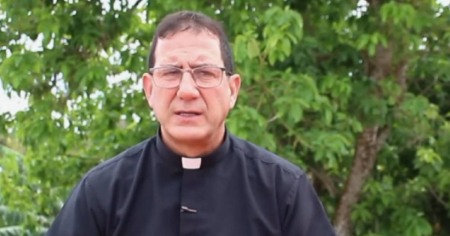A Catholic priest from Santiago de Cuba shared a video on social media in which he reflects on the current crisis on the island, emphasizing the importance of resilience and change as responses to adversity.
In his message, Leandro NaunHung urged his parishioners not to fall into passive resistance and asserted that in 2025, those who do not change will become extinct, emphasizing the need for adaptation in the face of the difficult times ahead.
In the video, the priest addresses the feeling of despair that overwhelms many Cubans, especially during nights without electricity: “It makes you want to cry because you ask yourself, how long will this go on, so much unnecessary suffering?”
Despite this, it encourages the community to find peace and joy amidst adversity, reminding them that the message of Christmas serves as a call to hope and spiritual preparation.
The priest emphasized resilience as the key to overcoming difficulties, distinguishing it from endurance, which he claimed leads to exhaustion: “Endurance ultimately leads to an explosion... It’s not about enduring, but about changing.”
She called on the community to come together, to support one another, and to seek new ways to move forward, from exchanging basic goods to seizing opportunities for generating income amid the crisis.
“Resilience means being able to change in the face of adversity and finding new ways to keep living, because no one has the right to take away my life,” stated NaunHung, calling on others not to be fooled by those who ask for patience while enjoying privileges.
In his remarks, he also recalled the lessons from the so-called "Special Period," during which many Cubans learned to adapt creatively despite extreme shortages.
However, he warned about the limits of resilience, mentioning that the ability to "endure" comes with an emotional and physical toll that cannot be overlooked: "To endure for the sake of enduring is not living; it's accepting that others are stealing your life."
NaunHung also emphasized the importance of solidarity among neighbors and believers, encouraging them to support each other as a community to survive. He discussed practical solutions, such as planting to generate income or sharing basic food supplies.
He said that this practical and community-focused approach is a way to reclaim dignity and independence in the face of challenges.
Frequently Asked Questions about Resilience and the Crisis in Cuba According to Father Leandro NaunHung
What message does Father Leandro NaunHung convey about the situation in Cuba?
Father Leandro NaunHung emphasizes the importance of resilience and change as a response to the crisis in Cuba. In his message, he urges against falling into passive resistance and encourages adaptation to adversities for survival. He also highlights the necessity of solidarity and community support to face the challenging times ahead.
How does Leandro NaunHung propose to address the food crisis in Cuba?
Leandro NaunHung suggests practical solutions such as growing food and preparing survival recipes. He also encourages the community to recycle aluminum cans to generate income and promote food self-sufficiency through traditional methods like food preservation with salt.
What role does the community play in Priest NaunHung's vision for overcoming the crisis?
The community is fundamental to NaunHung's vision for overcoming the crisis in Cuba. He emphasizes the importance of solidarity, mutual support, and community initiatives to face adversities. He proposes actions such as sharing food and organizing missionary kitchens to assist those in greatest need.
What lessons from the past does NaunHung mention to address the current situation in Cuba?
NaunHung recalls the lessons from the "Special Period" in Cuba. During that time, Cubans learned to adapt creatively despite severe shortages. The priest draws on these past experiences to encourage the community to explore new ways to overcome the current crisis.
Filed under:

